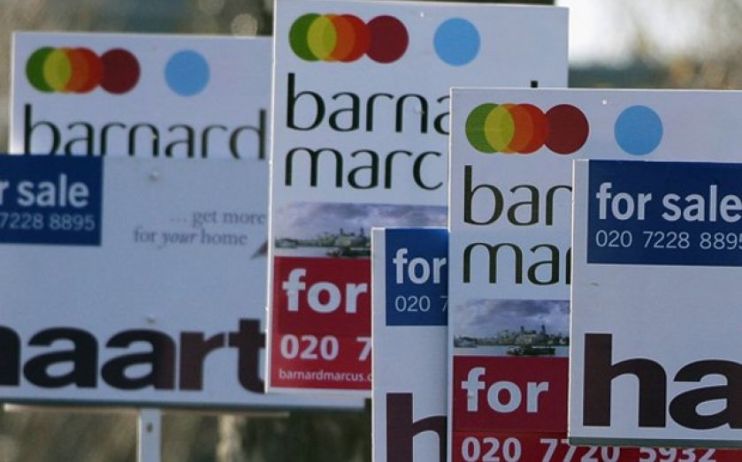House prices fall for first time in six months in January

House prices fell for the first time in six months in January as the end of the stamp duty holiday approached.
Nationwide’s annual house price index showed that prices fell 0.3 per cent last month, the first time they have dropped since June.
That means the average price for a house, not adjusted for the season, was £229,748 in January.
The annual rate of growth also slowed over the same period, slipping back from 7.3 per cent to 6.4 per cent.
Robert Gardner, Nationwide’s chief economist, said: “To a large extent, the slowdown probably reflects a tapering of demand ahead of the end of the stamp duty holiday, which prompted many people considering a house move to bring forward their purchase.
“While the stamp duty holiday is not due to expire until the end of March, activity would be expected to weaken well before that, given that the purchase process typically takes several months (note that our house price index is based on data at the mortgage approval stage).”
But Nicky Stevenson, managing director of estate agents Fine & Country, said that the lack of a collapse in house price growth showed that the tax relief was not the main driver for the market.
“This market is still clinging firmly to strong annual price increases and this is further evidence that, while the stamp duty tax break was a catalyst for the mini-boom, it’s not the main motivator pouring fuel on this fire.
“This isn’t really that surprising. By the end of last year, the market’s gains had already eroded the tax benefit of the Chancellor’s scheme, which already suggested there was more going on.
“Those who benefit least are also those more likely to be older, with families and most in need of more space. These households are also more likely to have the money to make that move happen. They are responsible for the narrative that has characterised the past nine months.”
Before the Open: Get the jump on the markets with our early morning newsletter
Prices to fall two per cent in 2021
Gardner added that the pandemic had turned the traditional relationships between house prices and the economy upside down.
Despite the economic squeeze caused by Covid-19, there were more mortgages approved in 2020 than in 2019.
House price growth also ended last year at a six-year high, despite the fact the economy contracted 10 per cent across the year.
Gardner added: “Looking ahead, shifts in housing preferences are likely to continue to provide some support for the market.
“However, if the stamp duty holiday ends as scheduled, and labour market conditions continue to weaken as most analysts expect, housing market activity is likely to slow, perhaps sharply, in the coming months.”
Samuel Tombs, chief UK economist at Pantheon Macroeconomics, predicted a two per cent fall in prices this year.
“The first month-to-month fall in Nationwide’s index since June and adds to evidence that house prices are topping out.
“Looking ahead, we continue to expect house prices to drop by about 2.0 per cent over the course of 2021, provided that government polices do not change.
“In addition, most of the recent rise in mortgage rates reflects banks repricing for the riskier lending environment and so likely will persist, even as demand for mortgages eases once the pandemic subsides.”